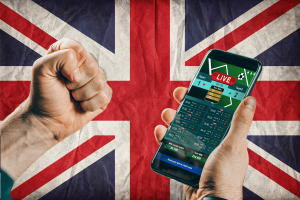

Meta’s decision to lower the minimum age to use its WhatsApp messaging service is drawing fire from children’s advocates in the UK and EU.
The move lowers ages from 16 to 13 in both territories; it went into effect as of April 11. Leading the charge on pushback against Meta, which is also the parent of Facebook and Instagram, is UK-based Smartphone Free Childhood. “WhatsApp are putting shareholder profits first and children’s safety second,” Daisy Greenwell, the group’s co-founder, said in a statement.
Government officials also weighed in. Vicky Ford, a Conservative member of Parliament, told Sky News the age-limit reduction was “highly irresponsible.” Mark Bunting, the director of online safety strategy for Ofcom, the UK’s media regulator, told BBC Radio the agency was already writing up codes of practice for social media companies to follow, with fines at the ready once it had the power to levy them.
“If they’re not taking those steps at that point, and they can’t demonstrate to us that they’re taking alternative steps which are effective at keeping children safe, then we will be able to investigate,” Bunting said. “We have powers to direct them to make changes, if we believe changes are necessary to make.”
Meta takes more steps; critics say they’re not enough
In a statement, Meta defended the move, and noted that all users have control over who can add them to user groups, and that messages from unknown numbers may be blocked and reported upon receipt. In February, WhatsApp introduced a feature to block the means of taking a screenshot of someone’s profile picture, to bolster privacy and anti-harassment measures.
Earlier this week, Meta announced that it would soon begin testing out a means of blurring explicit photos sent through Instagram’s direct messages, particularly to those underage, which is one component of “sextortion” attacks that target minors. And in January, Meta announced it would implement new direct message controls on both Facebook and Instagram to further shield children from receiving messages from adult strangers.
One week later, however, Meta chief executive Mark Zuckerberg came in for a withering hearing before the U.S. Senate’s Judiciary Committee. During his testimony, Zuckerberg was stared at by the parents of children who were harmed, abused, exploited, or had even died from their encounters with others on social media platforms he controls.
A bipartisan panel of lawmakers roundly excoriated him and his company, with one telling Zuckerberg he had blood on his hands. Another demanded Zuckerberg face and apologize to the families seated in the gallery, and he did.
Source link




